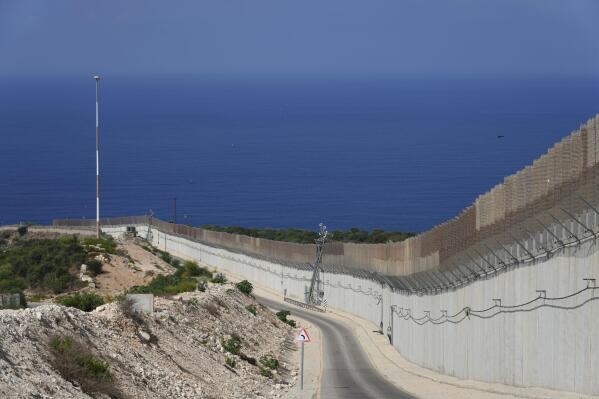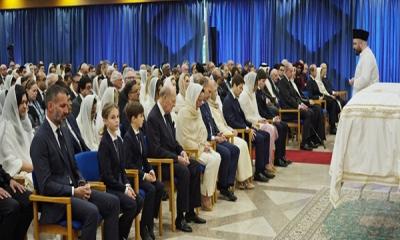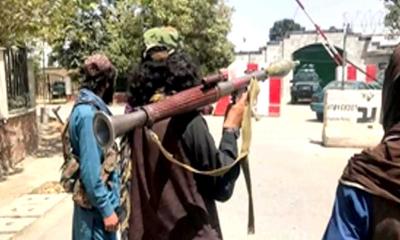- Experts warn of big loss if IDF lands in Lebanon
- Cyprus not giving its base to Israel against Hezbollah.
- Goals ‘to destroy Hamas’& ‘freeing hostages’ failed
Experts believe that Israel is not seen much confident to fight and get win against Hezbollah in Lebanon, even though it has announced the land attack with a boastful voice, along with the declaration of approval of the war.
Tensions between Hezbollah and Israel has risen after Hamas’ 7th October operation into Israel. According to that attack, Israel’s started war land attack against Hamas in Gaza. But it is far from over. Israel has still not achieved the two primary objectives Prime Minister Benjamin Netanyahu put forth at the start of the conflict, ‘destruction of Hamas’, and ‘freeing of remaining hostages held in Gaza’.
Israeli Foreign Minister Israel Katz said this week a decision on an all-out war against Hezbollah was ‘coming soon’ and that senior commanders of the Israel Defense Forces (IDF) had signed off on a plan for the operation. But, when they are failing in Gaza to achieve goals, is it possible to go on ground operation in forest areas of Lebanon?
Even, Israel is searching for soldiers to tackle Gazan fighters. Its forces (IDF) are facing increasing challenges as the war against Hamas enters its ninth month. On last Monday, Israel lost eight soldiers in an explosion in Rafah, in what Israeli media called the “deadliest incident for IDF” in six months.
The number might seem small in the context of the war in Gaza, but the number is far too high for Israeli public opinion. A week before the explosion, Hamas claimed to have killed an unspecified number of Israeli soldiers after its fighters detonated a booby-trapped house in Rafah.
The losses underscored Israel’s army chief Herzi Halevi’s warning in recent days about shortages in the military, saying it would prevent Israel from waging the war against Hamas with the same intensity.
Amid a shortage of troops, the army is also facing an unstable political landscape. The relationship between the army and Prime Minister Binyamin Netanyahu has deteriorated significantly, with Netanyahu reportedly criticizing plans announced by the military to hold daily tactical pauses in fighting to facilitate the delivery of aid to the Palestinian enclave.
The Israeli army is also facing domestic pressure from a population shocked by the Palestinian death toll caused by the Israeli offensive in Gaza. Skirmishes erupted on Monday night between police and anti-government protesters who took to the streets of Jerusalem, before marching to Netanyahu’s private home in the city, to show their discontent over the handling of the war with Hamas in Gaza.
“The IDF is totally exhausted after more than eight months of war,” said Ahron Bregman, a political scientist and specialist in the Israeli-Palestinian conflict at King's College London. ‘The IDF command, and the defence minister too, are desperate for a break to regroup.’
Meanwhile, no nearest country is ready to fight for Israel. The Cypriot president recently announced that his country’s bases would not be allowed to be used by Israel. ‘Cyprus is part of the solution and not the problem,’ the country’s President Nikos Christodoulides said after Lebanon’s Hezbollah threatened last Wednesday the Mediterranean nation if it opened its airports and bases to Israel.
“I have read the remarks made. My answer is that the Republic of Cyprus is not involved in the war in any way,” Christodoulides said, responding to comments from Hezbollah chief Hasan Nasrallah, according to a statement on the presidency’s website.
In his speech on Wednesday, Nasrallah warned the nearby island-nation that the Iran-backed group would consider the Cypriot government part of the ongoing Gaza war if it assisted Israel. “Opening Cypriot airports and bases to the Israeli enemy to target Lebanon would mean that the Cypriot government is part of the war, and the resistance will deal with it as part of the war,” Nasrallah threatened.
Christodoulides said “Cyprus is not part of the problem …
is part of the solution. And our role, as manifested, for example, through the humanitarian corridor , is being recognized not only by the Arab world, but by the entire international community.”“I therefore reiterate that Cyprus, our country, is not involved in any way,” he added. He also noted that Nasrallah’s remarks “are not pleasant
they do not correspond in any way to what is alleged, that is, to present the image that Cyprus is involved in war activities.”Cyprus opened a sea corridor in March to ship aid directly to Gaza, where deliveries via land have been severely disrupted by border closures and Israel’s military operations. Separately, the Cypriot embassy in Beirut announced on Wednesday evening via its social media platforms that it “will not be receiving any visa applications or papers for legalization on
, 20 June 2024. Passports and legalized papers may be collected as normal by showing the receipt issued by the Consulate upon the application for a visa.”It wasn’t immediately clear whether the decision was related to Hezbollah’s threats and whether it’s going to be for one day only. Some local media suggested that the call was an administrative one and related to readjustment of Visa fees. The embassy announced last week that it was going to stop receiving visa applications “on the 11th and 12th of June 2024, due to readjustment of Visa fees from the European Commission, for both individuals and travel agencies.”
Hezbollah, an ally of the Palestinian militant group Hamas, began trading fire with Israel across the southern border in the aftermath of the October 7 Hamas attack on Israel.
Concerns have recently mounted that the escalation of cross-border attacks between Hezbollah and Israel would turn into a full-fledged war. Cyprus is not known to offer any land or base facilities to the Israeli military, but it has in the past allowed Israel to use its vast airspace – its flight information region – to conduct air drills occasionally, but never during the conflict.
Christodoulides, according to the statement, said that channels of communication between the governments of Lebanon and Iran are on. “There are channels of communication through the diplomatic route,” he said.
ZH






